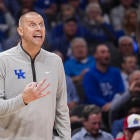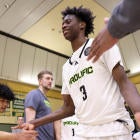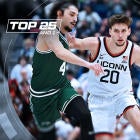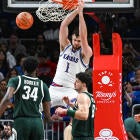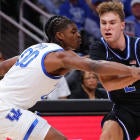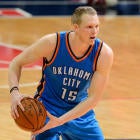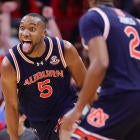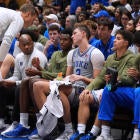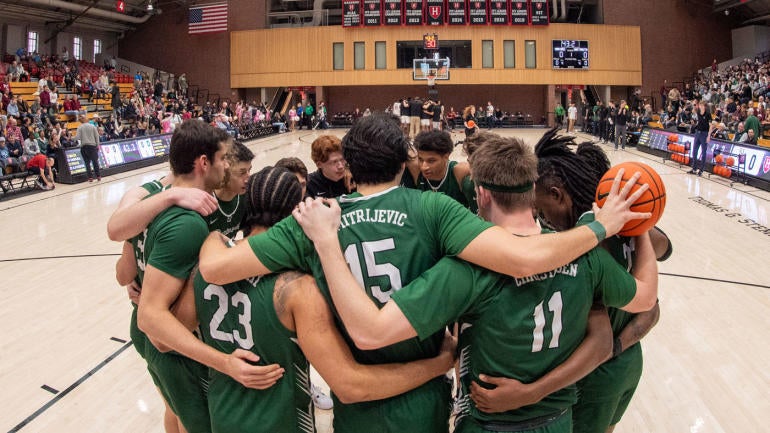
Players on the men's basketball team at Dartmouth College on Tuesday voted 13-2 to join Service Employees International Union Local 560 based out of Hanover, New Hampshire, in a historic decision that could have widespread implications for college sports. While the school has appealed the team's right to unionize, according to the NLRB, the vote is a first for NCAA athletes after previous unionization attempts failed.
A National Labor Relations Board regional manager cleared the way for this latest push on Feb. 5 by ruling that players at Dartmouth could vote to form a union. The team initially pushed for the ruling in September and followed through with Tuesday's vote, which potentially paves the way for others across the country -- particularly teams at private colleges -- to follow suit.
However, the vote is unlikely to be the final say on the matter as Dartmouth pushes back on the classification that its basketball players are employees of the school.
"For decades, Dartmouth has been proud to build productive relationships with the five unions that are currently part of our campus community," read a statement from Dartmouth. "We always negotiate in good faith and have deep respect for our 1,500 union colleagues, including the members of SEIU Local 560. In this isolated circumstance, however, the students on the men's basketball team are not in any way employed by Dartmouth. For Ivy League students who are on varsity athletes, academics are of primary importance, and athletic pursuit is part of the educational experience. Classifying these students as employees simply because they play basketball is as unprecedented as it is inaccurate. We, therefore, do not believe unionization is appropriate."
In addition to the financial benefits of becoming employees, unionizing would give athletes a greater say in shaping their collegiate experiences. University of Pennsylvania professor Karen Weaver, an expert on the intersection of higher education and college sports, told CBS News last week that unionizing will give athletes an avenue to sit down with administrators and negotiate on matters such as practice length, medical care and more.
"In the past, the schools have told the athletes what to do," Weaver said. "They have told them how to behave, when to show up, when to get on the bus, when to go to sleep. Now, there might be some more opportunity for contributions from the athletes because of union representation."
With the NCAA already backing away from its effort to police "pay for play" in the realm of NIL compensation amid a recent loss in federal court, the Dartmouth team's decision is merely the latest sign that college athletes are on track to become employees of their universities.
"The NCAA is making changes to deliver more benefits to student-athletes, including guaranteed health care and guaranteed scholarships, but the NCAA and student-athlete leadership from all three divisions agree college athletes should not be forced into an employment model," the association said in a statement. "The Association believes change in college sports is long overdue, and is pursuing significant reforms. However, there are issues the NCAA cannot address alone, and the Association looks forward to working with Congress to make needed changes in the best interest of all student-athletes."
Dartmouth is just 5-21 and 1-12 in Ivy League play this season and is one of the historically weaker Ivy League basketball programs. The Big Green's last winning season came in the 1998-99 campaign, and it hasn't reached the NCAA Tournament since 1959. It will be looking to snap a nine-game losing streak Tuesday, when it closes the regular season at home against Harvard.









